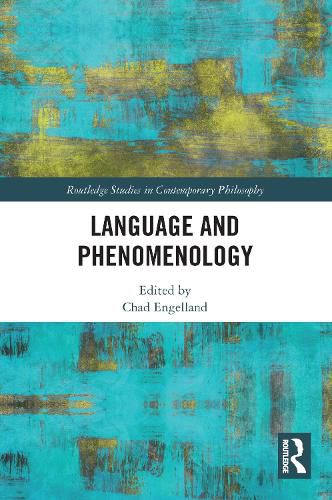Readings Newsletter
Become a Readings Member to make your shopping experience even easier.
Sign in or sign up for free!
You’re not far away from qualifying for FREE standard shipping within Australia
You’ve qualified for FREE standard shipping within Australia
The cart is loading…






At first blush, phenomenology seems to be concerned preeminently with questions of knowledge, truth, and perception, and yet closer inspection reveals that the analyses of these phenomena remain bound up with language and that consequently phenomenology is, inextricably, a philosophy of language. Drawing on the insights of a variety of phenomenological authors, including Husserl, Heidegger, Merleau-Ponty, Gadamer, and Ricoeur, this collection of essays by leading scholars articulates the distinctively phenomenological contribution to language by examining two sets of questions. The first set of questions concerns the relatedness of language to experience. Studies exhibit the first-person character of the philosophy of language by focusing on lived experience, the issue of reference, and disclosive speech. The second set of questions concerns the relatedness of language to intersubjective experience. Studies exhibit the second-person character of the philosophy of language by focusing on language acquisition, culture, and conversation. This book will be of interest to scholars of phenomenology and philosophy of language.
$9.00 standard shipping within Australia
FREE standard shipping within Australia for orders over $100.00
Express & International shipping calculated at checkout
At first blush, phenomenology seems to be concerned preeminently with questions of knowledge, truth, and perception, and yet closer inspection reveals that the analyses of these phenomena remain bound up with language and that consequently phenomenology is, inextricably, a philosophy of language. Drawing on the insights of a variety of phenomenological authors, including Husserl, Heidegger, Merleau-Ponty, Gadamer, and Ricoeur, this collection of essays by leading scholars articulates the distinctively phenomenological contribution to language by examining two sets of questions. The first set of questions concerns the relatedness of language to experience. Studies exhibit the first-person character of the philosophy of language by focusing on lived experience, the issue of reference, and disclosive speech. The second set of questions concerns the relatedness of language to intersubjective experience. Studies exhibit the second-person character of the philosophy of language by focusing on language acquisition, culture, and conversation. This book will be of interest to scholars of phenomenology and philosophy of language.